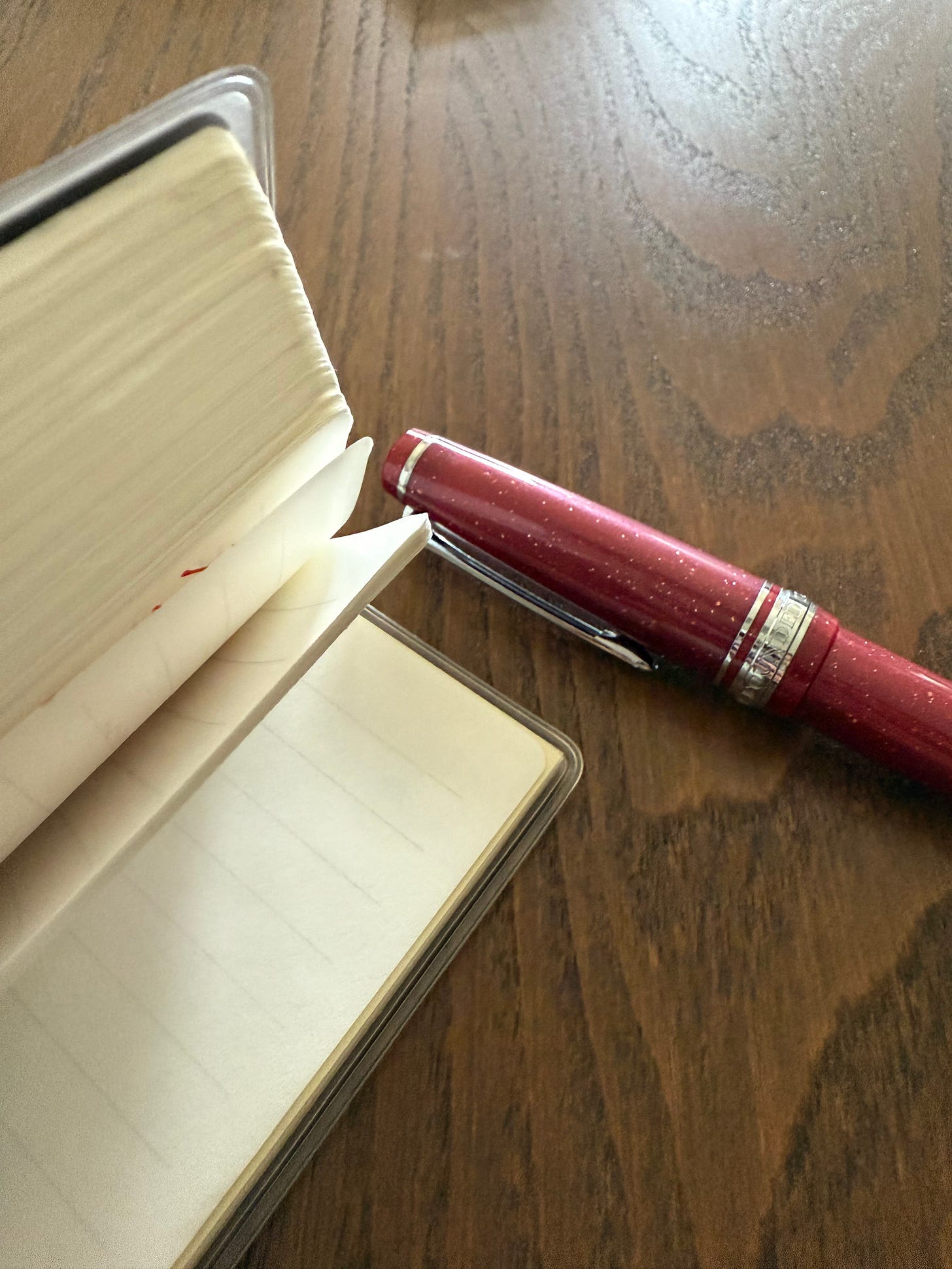Hey friends!
You probably don’t know this but I work as a Product Manager for a mobile app. As I have progressed in my career, I’ve been attending more meetings and have been context-switching more.
Now, I think I’ve been terrible in meetings. Not the speaking up part or contributing ideas. But the paying attention part.
I'd sit there with my laptop open, supposedly taking notes, but my mind would drift. Someone would mention an important deadline and five minutes later I'd have no memory of it. I'd leave meetings feeling like I'd absorbed maybe 40% of what happened.
Not good at all.
The problem wasn't the meetings
I kept blaming the meetings themselves. Too long, too boring, too many people talking at once. But the real issue was simpler – I wasn't actually present.
My laptop was open, sure. But I was also checking Teams chats, scanning emails, or simply staring at something else. My attention was scattered across five different things while someone was explaining that’s possibly important.
I even tried letting Copilot handle the note-taking for me. It would generate these perfect meeting summaries with all the key points and action items. But here's the thing – having the information captured didn't solve my focus problem. I'd still zone out during the actual conversation, then rely on the AI summary later. I had the notes, but I'd missed the context, the tone, the stakeholder concerns that actually mattered for making product decisions. 🙄
So I tried something old-fashioned: I brought a notebook to my next meeting.
Just a simple A5 notebook and Lamy 2000. No apps, no digital distractions. I kept my hands off the keyboard and just wrote things down.
There's something about the physical act of writing that forces you to process information differently. You can't write as fast as you can type, so you have to decide what's actually important. You're actively filtering and summarizing in real time.
Plus, there's nowhere to escape to. No browser tabs, no notifications popping up. Just you and the notebook!
My simple system
I don't overcomplicate it:
Date at the top
Action items get a box □ next to them
Important deadlines and release dates get circled
That's it. No color coding, no fancy layouts. Just information that I can actually find later.
The most important part: I just kept writing words – regardless of whether they seemed important or not. Random observations, direct quotes, even my own questions. The goal wasn't to create perfect notes, but to keep my brain engaged.
I don't write notes to take meeting minutes
I still rely on Copilot to summarize the meeting notes and we do have the capability to record meetings and review later. The notes that I take don't have value to anyone who asks. I primarily use this note-taking method as a way to commit things to memory and keep my hands off the keyboard.
It's about staying present, not creating documentation.
I don’t write notes to take minutes of the meeting
I still rely on Copilot to summarize the meetings notes and we do have the capability to record a meeting and review later. The notes that I take do not have value to any who ask. I primarily use this note-taking method as a way to commit things to memory and keep my hands off the keyboard.
This isn't revolutionary advice
The ironic thing? I literally write a newsletter about pens and notebooks, yet somehow missed the obvious solution sitting right in front of me.
Look, I'm not about to throw out all my digital tools. But there's something to be said for a method that works the second you pick it up. No setup and no distractions.
How do you handle meeting brain fog? I'm curious what works for other people!
🖋️, Jestine






As an author, I used to write my manuscripts completely on my laptop, from first draft to publication draft. Then one day I did a Google search for something that I can't even remember, but that somehow led to reading about writers (authors, poets, screenwriters) who write/wrote their first draft by hand. Some said it made them feel more connected to their stories. So I tried it with my next manuscript after that. I wrote the first 54 pages with a 12 1/2-cent ballpoint from the dollar store. While I was doing that, the longhand articles led me to articles about who used what instrument to write with (poet Dylan Thomas used a Parker 51; John Steinbeck started his writing day with 12 sharpened Blackwing pencils; Stephen King uses/used a Waterman Hemisphere; Joe Hill is partial to the Pilot Metropolitan). That in turn led me down the fountain pen rabbit hole.
The comments about longhand feeling more connected to the story is absolutely true. And now I use fountain pens almost exclusively. For one, they are so much easier on my arthritis; second, they're just plain fun; and third, I seem to have a feeling of superiority when I use my fountain pens.